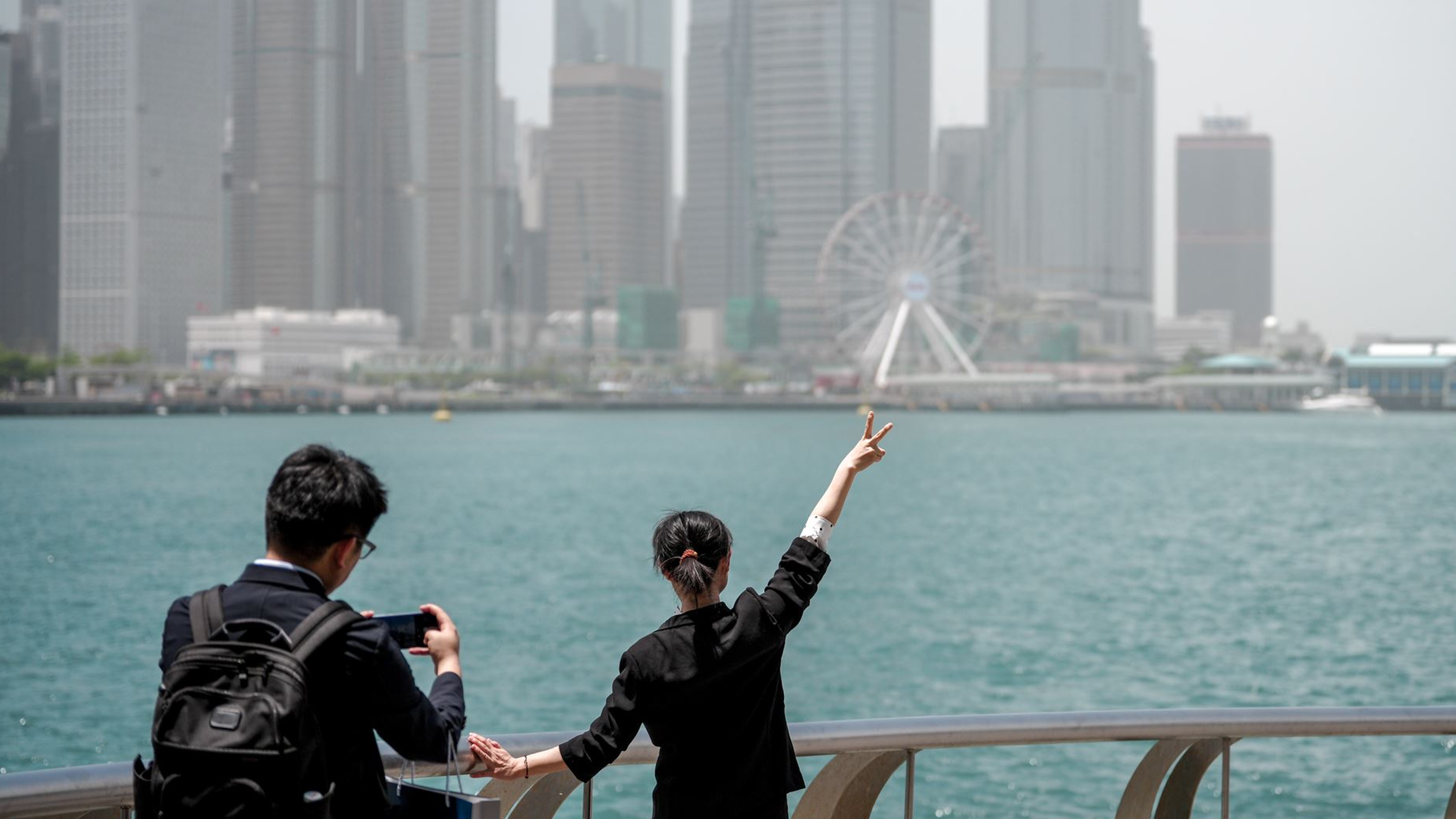
Tourism experts in Hong Kong endorsed the tourism-related initiatives presented in the latest Policy Address, and said that moves such as exploring new sources of visitors and developing yacht tourism will reinvigorate the industry.
They also emphasized the need for a collaborative effort to tackle talent shortages and drive digital empowerment.
In the Policy Address, delivered on Sept 17, Hong Kong Chief Executive John Lee Ka-chiu emphasized the importance of the "Tourism is Everywhere" concept, and proposed ways to inject the tourism sector with fresh momentum through mega events, cruises, culinary and wine experiences, the development of a yacht economy, and local thematic immersive tours.
READ MORE: Hong Kong tourism strives to grow with new strategies
Lee pledged the government would continue expanding the city’s aviation network and explore new sources of visitors — in particular the Middle East and Southeast Asia markets — with measures such as enhanced immigration experiences and service quality.
The policy blueprint also aims to establish Hong Kong as the most popular destination for premium visitors, and says the government will partner with the industry to provide more tailor-made luxury tours for high-spending visitors.
Perry Yiu Pak-leung, a lawmaker representing the tourism sector and chairman of China Travel Service (Hong Kong) — one of the largest travel agents in Hong Kong — said much of the feedback from the industry praised the initiatives for injecting fresh momentum into the sector’s growth.
Yiu highlighted the government's commitment to expanding flight connectivity, which includes encouraging airlines to increase their flight schedules, forging new air service agreements, and expanding air traffic rights globally. Enhancing the transportation flow is key to the sector's recovery, Yiu said, adding that these steps directly address the industry’s needs.
The lawmaker also said the industry can benefit from other parts of the Policy Address. For instance, Lee’s plans to develop the low-altitude economy can also be leveraged by the tourism sector to introduce low-altitude sightseeing routes and tourism products in the near future.
Timothy Chui Ting-pong, executive director of the Hong Kong Tourism Association, welcomed the promotion of the yacht economy, including the addition of around 600 yacht berths at coastal locations throughout the city and the facilitation of yacht travel around Guangdong province and Hong Kong. These are fundamental moves to drive the yacht economy forward, said Chui.
Citing the success of yacht tourism in Shenzhen's Dapeng area and Guangzhou's Nansha, Chui said that the barrierless flow of yachts around the two regions will benefit both the Chinese mainland and Hong Kong, and added that high-end tourists who are attracted by yachting opportunities will also bolster related industries such as yacht maintenance and luxury hospitality, and create new jobs.
Chris Cheung Mei-hung, a Sai Kung district councilor who holds a tour escort license, said that Sai Kung — renowned for its scenic coasts and islands — has much to offer yacht tourism. He urged the government to increase yacht berths not only at Lamma Island, Aberdeen and Hung Hom, as outlined in the Policy Address, but also in Sai Kung.
He said he hopes the district can seize the opportunity to boost the yacht economy by blending its fishing village culture and natural landscapes. Also, Cheung added, showcasing more of Sai Kung's attractions could alleviate congestion in popular areas like High Island Reservoir East Dam, ensuring a balanced development of Sai Kung's tourism sector.
While encouraged by the new policies, Yiu urged collaboration across sectors to tackle the talent shortage in the industry.
READ MORE: John Lee pledges to boost Hong Kong tourism appeal
He noted that because of the industry's service-oriented nature, it struggles to attract young people, particularly to fill frontline positions like hotel housekeepers and tour bus drivers.
He suggested that young people could be encouraged to engage with and understand the industry better through new university courses, enhanced vocational training and increased internship opportunities.
Another bottleneck is the lack of digital literacy among tourism practitioners, said Yiu, adding that boosting the industry's adoption of new technologies, such as artificial intelligence, would help enhance operational efficiency and service quality, as well as develop more appealing products.
Contact the writer at amberwu@chinadailyhk.com


